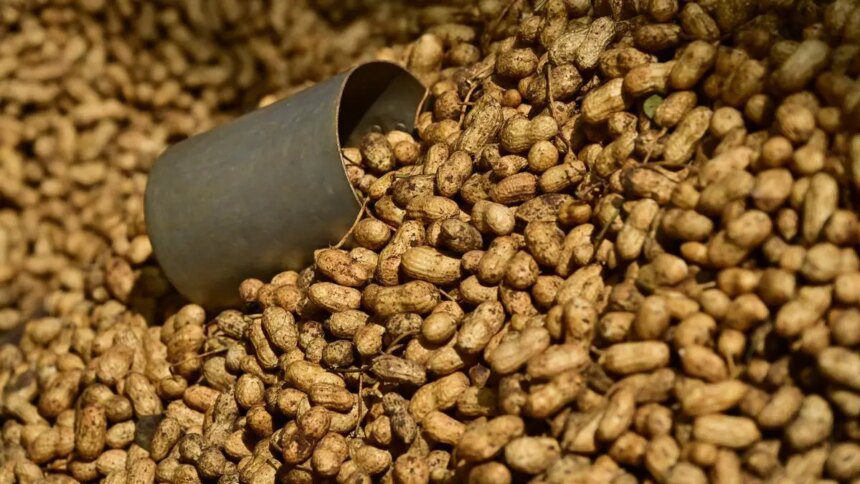Indonesia imports a third of India’s groundnut exports. Last fiscal, it imported 2.77 lakh tonnes valued at $280 million of the total 7.46 lakh tonnes valued at $795 million shipped out by India. | Photo Credit: MURALI KUMAR K
The Agricultural and Processed Food Export Development Authority (APEDA) has reached out to the Indonesian Quarantine Authority (IQA) regarding the suspension, but has yet to receive a response, according to trade sources.
Indonesia’s import ban on Indian groundnuts was implemented on September 3, following a notification issued on August 27.
“APEDA conducted a meeting with exporters to discuss how to address the Indonesian notice. They reached out to Jakarta, but there has been no progress,” stated a trader who preferred to remain anonymous.
Two Key Issues
Exporters have identified two critical issues regarding Indonesia’s management of groundnut imports from India. Firstly, the IQA reported aflatoxin contamination in shipments three months post-arrival, raising questions about storage conditions in Indonesia.
“There is uncertainty about how the groundnuts were stored for three months and the adequacy of warehouse facilities. We cannot accept decisions made three months after consignments arrive at the ports,” remarked a New Delhi-based analyst.
The second issue is that exporters contend Indonesia’s testing standards do not align with World Trade Organization (WTO) guidelines. For instance, the IQA examines a one-kilogram sample from the consignment, while APEDA tests 20 kilograms.
APEDA officials did not respond to queries from businessline regarding these matters sent a week ago.
“There is uncertainty about how the groundnuts were stored for three months and the adequacy of warehouse facilities. We cannot accept decisions made three months after consignments arrive at the ports,” A New Delhi-based analyst
Upcoming Crop Season
“The Commerce Ministry and APEDA must take swift action as the new groundnut crop will start arriving in a month. Any failure to resolve this issue could adversely impact traders, exporters, and farmers,” warned an exporter.
During the current kharif season, groundnuts have been cultivated across about 48 lakh hectares, a slight increase from 47.65 lakh hectares last year. In Gujarat, the state anticipates a record production of 66 lakh tonnes. Nonetheless, the oilseed is currently priced lower at ₹5,682 per quintal, compared to the minimum support price of ₹7,263 set by the government for this crop year, which extends to June 2026.
Acreage (Kharif 2025 season)
Indonesia accounts for one-third of India’s groundnut exports. In the last fiscal year, it imported 2.77 lakh tonnes, valued at $280 million, out of a total of 7.46 lakh tonnes worth $795 million exported by India.
The suspension of Indian groundnut imports by Indonesia comes just five months after APEDA had issued an advisory urging testing labs to adhere strictly to procedures for peanuts and peanut products exportation, focusing on sampling, analysis, and shipment protocols.
Aflatoxin Concerns
This advisory was prompted by IQA’s decision to enhance monitoring of high aflatoxin levels in peanuts and wheat imported from India. In mid-April, the authority registered 17 food testing laboratories to assess agricultural products being exported from India.
In 2022, Indonesia had similarly suspended agricultural imports from India due to unregistered testing labs and elevated aflatoxin levels in groundnuts.
Aflatoxins, which appear as molds in grains and oilseeds, are toxic compounds produced by the fungi Aspergillus flavus and Aspergillus parasiticus, and they contaminate groundnuts in warm, humid conditions. These toxins are known to be genotoxic and carcinogenic, posing health risks to both humans and animals, with Aflatoxin B1 being a particularly potent liver carcinogen.
Published on September 19, 2025










